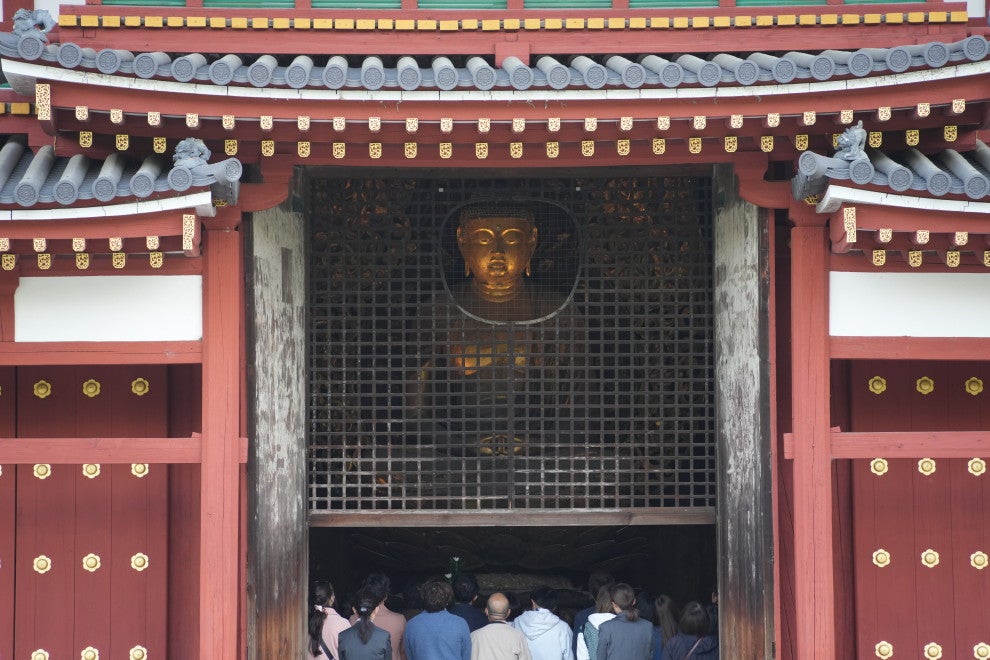The following is from Shintaro Fujita's serial column in the front matter of today's monthly magazine issue, Hanada.
It is a must-read not only for the Japanese people but for people worldwide.
Yoshimasa Hayashi is Disqualified as Foreign Minister
One month after a senior executive of Astellas Pharma's local subsidiary, A, was detained on suspicion of espionage in Beijing, China, a startling piece of information circulated in Nagata-cho.
A is a China expert stationed there for over 20 years.
He is well acquainted with the pharmaceutical industry, trading company employees, and Beijing correspondents of newspapers and TV stations.
He was a well-known figure, having served as vice president of the China-Japan Business Association, a group of Japanese-affiliated companies.
He was also a "pro-China" figure, boasting of his association with the Chinese government and Communist Party officials.
Why was he detained?
According to sources in Nagata-cho, the Chinese side detained him to keep him quiet, fearing that important information about organ transplants and the new coronavirus, which has become an international scandal, might leak out of his mouth.
According to a survey by Western human rights groups, as many as 60,000 to 100,000 organ transplants are performed annually in China.
In Japan, only 455 surgeries were performed last year, involving the donation of organs after death from 108 donors.
The figure is not one but two orders of magnitude higher.
On the other hand, the total number of registered donors in China is only 3.15 million (in 2021), of which 33,000 donated organs after death.
It does not even cover the number of surgeries performed in one year.
Furthermore, organ transplants in China are characterized by short waiting times, and the Japanese also take advantage of this service.
In Nagata-cho, there was a case in which a secretary of a leading Liberal Democratic Party member known for his pro-China stance suffered from severe liver disease.
When he was not seen for about a month, he went to China to undergo transplant surgery.
So where are the organs needed for transplant surgeries, which officially boast the highest number in Asia, being supplied from?
Human rights groups have pointed out that there is a strong possibility that Falun Gong followers and political prisoners of ethnic minorities such as the Uighurs, who are persecuted in China, are being used as "donors" regardless of their own will. Still, there is a lack of conclusive evidence.
The Chinese side suspects that A tried to take the data that would serve as proof of this out of the country.
Astellas has been deeply involved in organ transplants in China since entering the country nearly 30 years ago.
Sales of its main product, the immunosuppressant Prograf, which is indispensable for organ transplants, have steadily increased in China.
The number of transplant surgeries has also increased dramatically in proportion to the increase in sales.
A had been at the forefront of this sales expansion and was able to obtain basic information on organ transplants, such as the number of surgeries estimated from the number of hospitals to which the drug was supplied and the volume of drug supplies.
Another area where the Chinese side suspected A was collecting information on the new coronavirus that had broken out in Wuhan.
As an employee of a pharmaceutical company stationed in the area, gathering information on infectious diseases is a natural act.
Still, one cannot be too careful because "even mundane data may be designated state secrets" (Beijing resident).
Moreover, China has a strong spy network in Kasumigaseki and Nagata-cho.
Eiji Suzuki, former president of the Japan-China Youth Exchange Association, was detained on suspicion of espionage and spent six years in prison even though he was also "pro-China," was advised by an old Chinese acquaintance as follows.
A Chinese acquaintance of his advised him, "There is a considerable number of spies inside the (Japanese) government. This is a serious matter. Please make sure to disclose it when you return to Japan" (Chuo Koron, January 2023 issue).
The Japanese government has failed to develop any countermeasures to China's unreasonable stance that anyone who comes into contact with officials of the Public Security Intelligence Agency or the Cabinet Intelligence and Research Office during a temporary return to Japan is considered a "spy.
Yoshimasa Hayashi, who is seeking the "post-Kishida" position, naturally went to Beijing to ask for the release of A.
As foreign minister, it is natural that he would make such an overture, but he received no response.
It is about the level of competence, at best, of a "pro-China" figure who even served as chairman of the Japan-China Friendship Parliamentarians' League.
Moreover, he was not even used as a child because he was photographed smiling at the person he was discussing the issue with, and it was aired in Chinese newspapers and on TV.
The Evening Fuji ran the headline "Foreign Minister Disqualified" on its front page (April 11), and it was exactly right.
Not only is he a disqualified foreign minister, he is also a disqualified candidate for prime minister.
One would think that the prime minister, who is also a member of the Kochi-kai, would be disappointed, but he is anything but.
He was not at all upset.
Then I realized something.
The failure of the foreign minister's talks had already been factored in.
Hayashi, who had switched to the House of Representatives and was now number two in the Kochi-kai in both name and reality, was the prime minister's the apple of his eye.
He also does not like that Hayashi graduated from the University of Tokyo's Faculty of Law, which he failed three times.
Rather than letting Hayashi score points in this race, it would be more convenient for the prime minister to have the public's opinion that "Hayashi is not ready yet," to survive the presidential election coming up next year.
Sanae Takaichi, aiming to become Japan's first female prime minister, is in low spirits after her defeat in the Nara gubernatorial election.
Secretary General Toshimitsu Motegi, who failed to stop the LDP from sinking in the Kansai region, has lost his reputation.
Kishida's rivals are on the verge of dropping out of the race.
The truly frightening figure was Fumio Kishida!
最新の画像[もっと見る]
-
 These are the top 10 search results as of 2024/6/23, 19:07.
2分前
These are the top 10 search results as of 2024/6/23, 19:07.
2分前
-
 Não há guerra justa na história.
2時間前
Não há guerra justa na história.
2時間前
-
 Il n’y a pas de guerre juste dans l’histoire.
2時間前
Il n’y a pas de guerre juste dans l’histoire.
2時間前
-
 Es gibt in der Geschichte keinen gerechten Krieg.
2時間前
Es gibt in der Geschichte keinen gerechten Krieg.
2時間前
-
 No hay ninguna guerra justa en la historia.
2時間前
No hay ninguna guerra justa en la historia.
2時間前
-
 Non esiste una guerra giusta nella storia.
2時間前
Non esiste una guerra giusta nella storia.
2時間前
-
 Sikapnya sama dengan orang-orang yang mengendalikan departemen
2時間前
Sikapnya sama dengan orang-orang yang mengendalikan departemen
2時間前
-
 C'est la même attitude que celle des personnes qui contrôlent le département d'information
2時間前
C'est la même attitude que celle des personnes qui contrôlent le département d'information
2時間前
-
 É a mesma atitude das pessoas que controlam o departamento de notícias da NHK.
2時間前
É a mesma atitude das pessoas que controlam o departamento de notícias da NHK.
2時間前
-
 Es ist die gleiche Haltung wie die der Leute, die die Nachrichtenabteilung von NHK kontrollieren.
2時間前
Es ist die gleiche Haltung wie die der Leute, die die Nachrichtenabteilung von NHK kontrollieren.
2時間前









